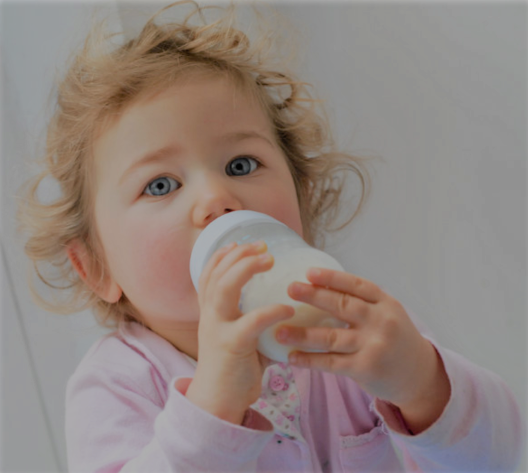A sniffle, a sneeze, some cough and that sinking feeling deep within. Having a cough or cold can make anyone feel sore, but it is particularly unpleasant when your little one has it. More often than not, it may cause mild fever, which affects appetite and brings along body pain and weakness.
The occurrence of a common cold begins with phlegm (sticky mucus) formation, which causes irritation as it drains down the throat. This further leads to cough and sore throat, making it difficult to swallow food. The most annoying part, however, is the reflux which can occur during a cough that leads to vomiting. While the good part is that it brings some phlegm out, the bad part nonetheless is, that the child also ejects out the little food that you had struggled so hard to make her eat. What’s more, is the drained out feeling that gives you the worst of it.
While it is definitely hard on the child, it is equally painful for the moms, to go through this. Its also worrisome as even those little ones need to meet some big milestones (weight, height and HC) by their next vaccination trip to the doctor. Though there are many, home remedies, magic potions and lists of do’s that can be used for relief for the aching throat or the leaky nose, yet there are some major dont’s which can’t be lent a cold shoulder to.
Taking one heavy meal: Here I want you to do a tiny experiment. Do a forceful cough and feel the contraction in your stomach. Yes. It’s really powerful, even while it is fake. Cough, even mild one, causes a forceful contraction of the stomach, thereby leading to reflux or vomiting. So split that one big meal into two small ones, to help stay the food in. The same also applies to water or any other liquid that the child takes.
Drinking milk before sleep: Milk can cause the phlegm to thicken, thereby increasing irritation to the throat. The habit of bedtime milk, even with a little cough, may cause the child to vomit and empty her stomach entirely, just before sleep. While milk is an important component of a toddler’s daily diet, it may be more suited to shift the timing from night to evening or rather to give it in a porridge form.

Sleeping on the tummy: Kids often change sides, postures and move around on the entire bed, during sleep. One particular posture, which is sleeping on the tummy, puts pressure on the stomach, eventually leading to reflux or cough. Hence, it’s important to ensure that they don’t sleep on tummy. It does ask for some extra work, on the parent’s part, but is really important for the little one.
Avoiding Pillows: Lying flat, during cold, can cause the mucus to gather at the back of the throat. This can cause discomfort and cough. Elevating the head, with the help of pillows, can prevent the dripping of mucus from the sinus to the back of throat, and help ensure a better sleep for the child.
Crying: Kids cry for multiple reasons, some genuine while some not. But crying or even loud sobbing can irritate the throat, thereby aggravating cough. So, try to calm down your little one, before the cough sets in.

Gulping Food: Toddlers and young kids may sometimes swallow their food without properly chewing it. Food may get stuck in the throat, causing trouble. A workaround for this is to substitute solids with warm liquid foods like soup, porridge, rava kheer or khichdi, which are easy to swallow and provide relief to the throat.
Dust: Dust can aggravate cough symptoms and may also increase the time to recover from viral infections like cold. So, it is suggested to do regular dusting inside the house and also avoid playing outdoors, if it is dusty.

Extremely simple and useful points. It’s strange that sometimes we may do big things but miss out on simple things, like the ones you have suggested. Really helpful.
Thanks Adrin. Glad that you found the article helpful 🙂